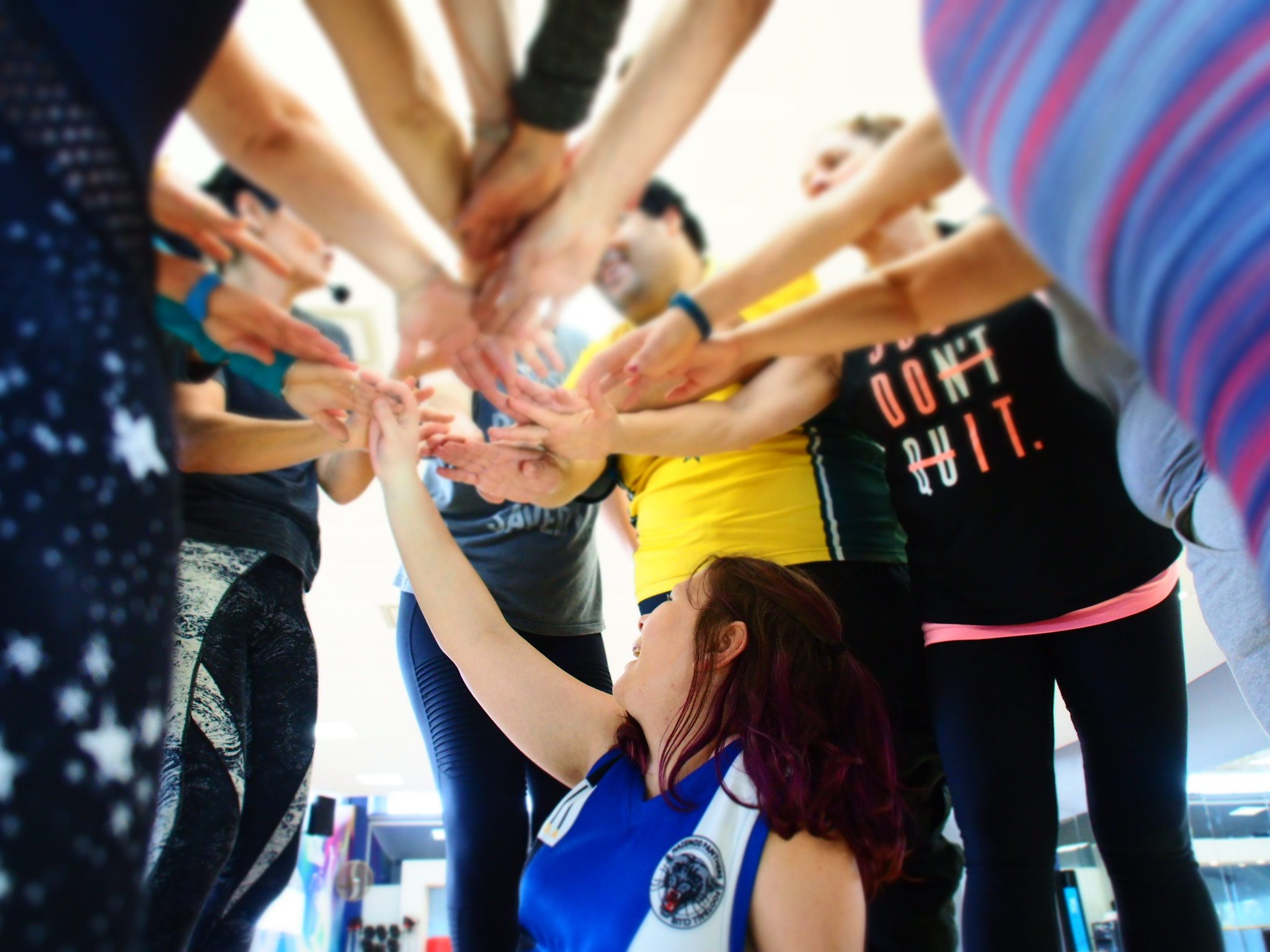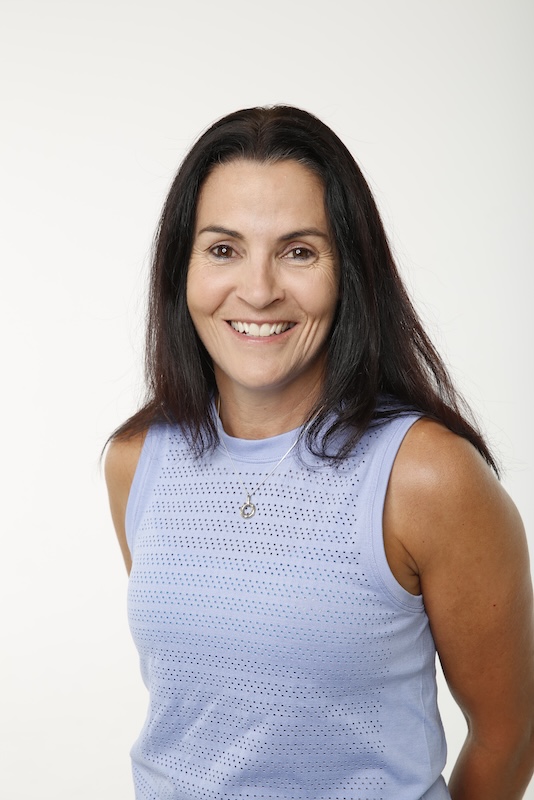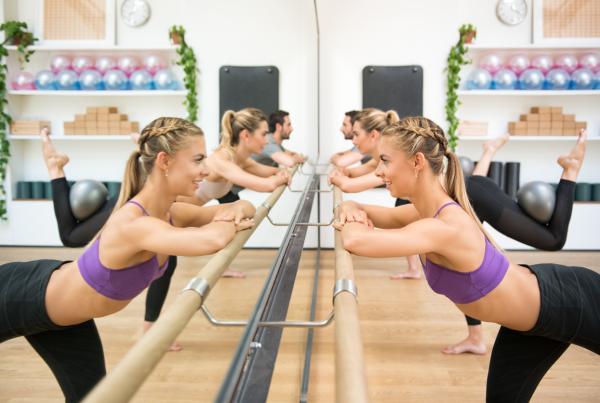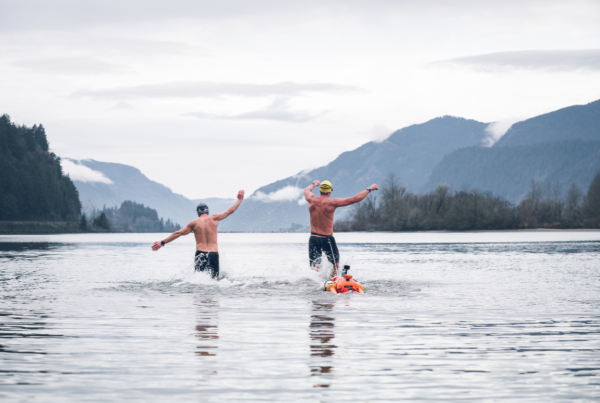Caitlin Syer, along with her mum Carol Syer, shares how it feels to live every day with a disability and how the fitness industry can learn to be inclusive.
* Editor’s note – In the UK we tend to use the term ‘learning disability’ rather than ‘intellectual disability’ which is often used in Australia. A great resource to help with getting terminology right in the UK is Scope’s End the Awkward campaign.
Here are her words…
Have you ever heard the term “walk a mile in my shoes”? I would love it if we could make this really happen. Not only would I like to spend a day in a non-disabled body so I could live a day without the stares and rudeness and feel accepted, but I would love people to experience what I go through on a daily basis.
My name is Caitlin, I’m 27, funny, like to listen to music, work in a gym, love animals and I have an *intellectual disability and dyspraxia.
I’m a disability advocate. I live in Melbourne, Australia and sit on the Victorian Disability Advisory Board. I also work as a customer service officer at a large council fitness facility in Melbourne and work for the Victorian Government in the Public Sector, Innovation.
I really wish people could spend a day walking in my footsteps.
As a young person who lives with an intellectual disability, I challenge everyone to take some time out and think about spending a day in the life of a person living with a disability. In all areas of life – health, education (outcome and opportunities), social and economic participation, wellbeing, employment, housing, rates of violence – people with disability have poorer outcomes than those without a disability.
UK’s current context1,2
- There are 14.1 million disabled people in the UK.
- Disabled people are almost twice as likely to be unemployed as non-disabled people.
- One in three disabled people feel there’s <itals>a lot</itals> of disability prejudice.
- One in three people see disabled people as being less productive than non-disabled people.
- The proportion of disabled people (13.9%) aged 16 years and over in England who reported feeling lonely “often or always” was almost four times that of non-disabled people (3.8%) (year ending March 2019).
- Around one in seven (14.3%) disabled people aged 16 to 59 years in England and Wales experienced domestic abuse in the last 12 months, compared with about one in 20 (5.1%) non-disabled people; disabled women (17.5%) were more than twice as likely to experience domestic abuse in the last year as non-disabled women (6.7%) (year ending March 2020).
- Life costs you £583 more a month on average if you’re disabled.
My story
I have an intellectual disability. I hope to use my experience of living life with a disability to improve life for others, especially around employment, travel and social acceptance.
I attended a mainstream primary school but was moved out of that system into a specialised secondary school in Year 7. This was my first taste of segregation: a segregated school led to a segregated life.
We like to use the word ‘special’ – special school, special bus, special education – but there really isn’t anything special about it. To me, ‘special’ means segregated.
Disability and employment
When I finished my years of schooling, I didn’t have the certificates/education that others had, which immediately made it hard to find a job – especially one that requires a higher education – and a career certainly seemed out of the question.
In my ‘special’ school, we were taught everyday household skills, but no knowledge of subjects and processes that would be necessary for careers. I feel like I missed out on an education.
The option that was often presented to me was specialised employment. In Australia, these are places where people with mostly intellectual disabilities work together, usually in packaging.
I wanted to be accepted in the community and work in a job I loved with all types of people: I’m not defined by my disability.
I have a voice and I have lived experience; I know if I can find the right path, guidance and support I will absolutely be a contributing member of society and any workplace, and I can help create more user-friendly systems for others.
I feel lucky that, through my advocacy and persistence, I have found work. I love my jobs and I am still learning to find my place in this world.
The fitness industry
We have a lot of customers/members who utilise our fitness facilities with a disability. I feel that having a person/people on staff with disability is an advantage. I often see processes or procedures that can be improved or made more user friendly, as I can relate to the barriers that others may not see. People with disability want to see themselves represented in company advertising, staffing and in all aspects of life. Being on staff acts to educate others about inclusion for both work colleagues and gym users. The more people with disability in jobs and out and about in society, rather than living segregated lives, means we all learn about diversity and inclusion and start to break down long-held barriers.
I love Zumba. Whilst I may not be the most co-ordinated person, me being in a group exercise class hopefully encourages others to join in. You don’t need to move perfectly or look a certain way to be part of a class and reap the benefits. The instructors are always encouraging and I’ve always loved being included in the coffee at the end. I really feel the way I’m included or not included can stem from the attitude of the instructor and how welcoming they are! I’m not going to pretend I haven’t had challenges; once in a class a member came up to me and told me I should be in the beginners’ class and suggested a seniors’ class to me. I was really upset and didn’t attend Zumba for a long time after that, but I know that people can think they are helping and have often not included people with disability in their lives, so they say rude or inappropriate things. I try to take it in my stride and move on, and continue to advocate and speak out.
Along with my mum, who is a group exercise instructor of over 30 years, we have set up our programme, Enable. This is an education and training platform to educate group exercise instructors and personal trainers on how to successfully include people with predominately intellectual disabilities in fitness centres. I’m very proud of our programme and have helped instructors learn to be more inclusive by sharing my lived experiences.
Recognising and removing ableism
What is ableism?
Ableism is favouring neurotypical people and the exclusion and devaluation of people living with a disability or those who are neurodivergent. Although sometimes ableism may not be intentional, in the same way people may argue that racism and sexism are sometimes unintentional, it is no less harmful. For instance, media stories can use words that communicate disability as a burden, something to be overcome or something that needs fixing.
Ableism, along with other forms of discrimination, is a human rights issue and should be stamped out with force.
So, what can you do about ableism?
I encourage you to look for it and, when you see it, call it out. Based on my experiences, here are some things that can help remove ableism:
- The best thing to do is ask, don’t assume. Make sure everyone is included; this will lead to better productivity and a mix of ideas and innovations will come from this.
- Simplify forms and documents. One of the areas I really battle with at work and in daily life is reading and filling in forms and documents. When creating or writing documents, think about the different users and the level of education the user may have, and then write so everyone can access the information. This will not only help people like me, but also people who have English as a second language. Anyone who’s tried filling in an application for a job or mortgage will know it’s not easy for most people, so imagine if you’ve had a low level of education – this immediately creates an additional barrier for me to be included in general life activities. Making forms easy to read, easy to use and in plain English would help so many. (Is it easy to understand the form and sign-up process?)
- Support flexibility in workplaces. I have dyspraxia, which affects my co-ordination. Tasks need to be broken down, so I can follow them. I won’t remember or I’ll get confused if you give me tasks that have more than about three steps at a time. I also find it extremely difficult to sit through a typical eight-hour office shift – but I’m guessing that many neurotypical people are also less productive when they sit down for a straight eight hours! In my case, I require short but regular breaks. Being able to choose how to allocate my break is beneficial to my work. Rather than having one hour off for lunch, I work best with many shorter breaks. Everyone will be different but allowing flexibility certainly makes for a more supportive work environment.
- Be an ally. A lot of people with intellectual disabilities do not struggle with the same things I struggle with, and therefore may be very good with the things that challenge me most (i.e., numbers and reading!). Having a learning disability does not mean you have a set number of skills or struggles; it’s very individual.
The key points to take away from this are that people with a learning disability have the same rights to a full-time job/career that they love and to have a social life like anyone else. They have the right to be included in a gym setting, group classes and on the staff. We want the same things in life and to be treated the way you would treat anyone else. For too long it’s been the norm that people with disability don’t have career aspirations – they either don’t work or only have volunteer roles. This needs to change. If you want to bring more people with disability into your fitness facility, what better way than to have personal trainers and customer service staff, etc. who also have a disability. You may need to look at the recruitment process to make sure this can happen!
At the end of the day, ableism is just a word that has no place in our society.
I hope this article will encourage you to speak up when you see ableism. The best way we can move forward is by building allies. We can create inclusive workplaces by getting more people on board the inclusion train. If we are all looking out for and calling out ableism, the world and our fitness facilities will become more inclusive. See you in the gym!
This previously featured in the Fitpro digital magazine.
You can learn more with Carol and Marietta Mehani in Enable – Inclusivity in the Industry
References
- Scope: https://www.scope.org.uk/media/disability-facts-figures/, accessed 9 June 2022.
- Office of National Statistics: https://www.ons.gov.uk/peoplepopulationandcommunity/healthandsocialcare/disability/articles/outcomesfordisabledpeopleintheuk/2020, accessed 9 June 2022.








